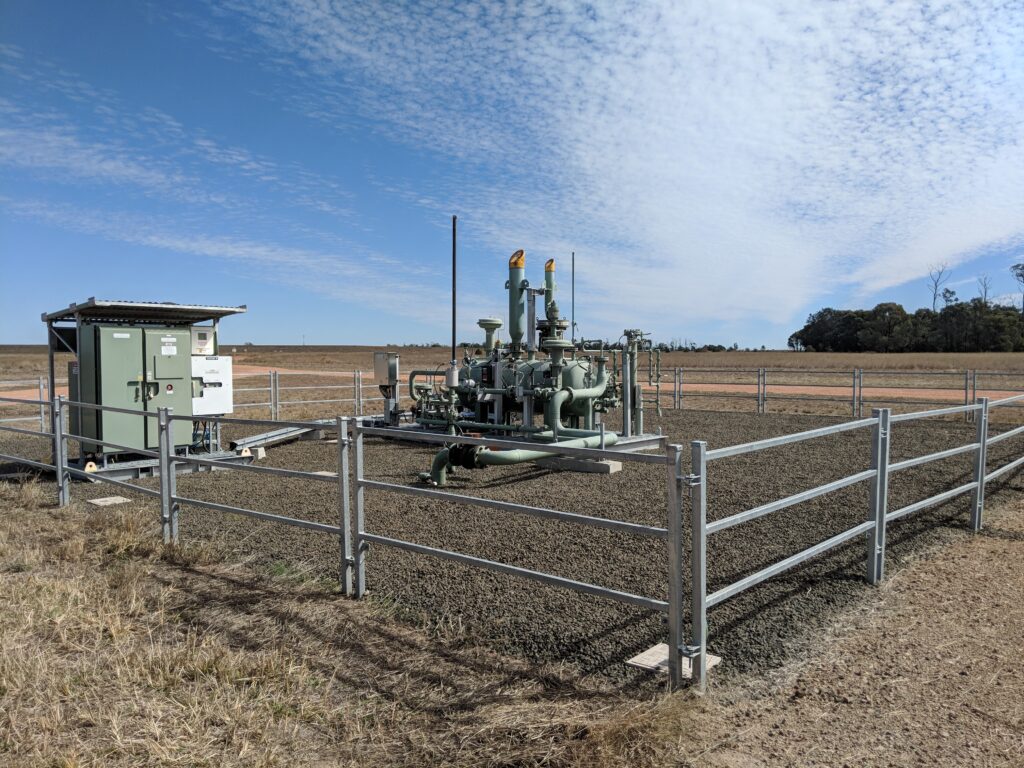New GISERA projects
CSIRO’s GISERA kicked off the new year with new research projects. All four projects – two in Queensland, two in New South Wales – will help to answer key questions raised by local communities.
In northern NSW, two studies will focus on the Narrabri Gas Project (NGP). In 2020, the NSW and Federal Governments approved the extraction of coal seam gas (CSG) from the Gunnedah Basin, near Narrabri.
Options for beneficial reuse and end-use for brine
The NGP will produce and treat large volumes of saline ‘produced water,’ which will create treated water suitable for beneficial reuse and a smaller volume of highly saline wastewater reject (brine). Communities have expressed concerns about the management of this brine and options for its reuse/end-use. If not managed correctly, brine can pose risks to the environment, to communities and to agriculture.
In this study, CSIRO scientists will review existing and emerging technologies and solutions for the beneficial reuse and end-use options of brine, and seek community feedback on the socio-economic impacts of each potential option.
Risks of forest fragmentation from CSG activities in the Pilliga Forest
The NGP will result in up to 850 gas wells, and the clearance of 1,000 hectares (ha) of vegetation in the Pilliga Forest, near Narrabri. The Pilliga Forest covers approximately 535,000 ha and is the single largest area of inland plains forest and woodland in Australia. Communities and landholders are concerned about the negative environmental impacts from this development, especially forest fragmentation.
CSIRO scientists will assess current fragmentation, analyse how forest fragmentation affects threatened species, predict the impact of the NGP on species (based on their habitat needs), and propose a monitoring framework. This study includes both desktop research, field surveys of threatened species, and soil and fungal sampling.
In Queensland, CSIRO scientists will focus on two new research projects in the Bowen and Surat Basins.
Assessing medium-term socio-economic impacts of onshore gas activity in Queensland
In the past 20 years, the growth of onshore natural gas extraction in Queensland has had a range of positive and negative social, demographic and economic impacts on local communities. Yet there is a lack of research on medium- to long-term impacts for the Bowen and Surat Basins.
This desktop study aims to address gaps in our understanding of the medium-term socio-economic impacts of natural gas extraction. CSIRO scientists will build on GISERA’s 2013-2014 study of these regions by using data from the 2016 and 2021 Australian Bureau of Statistics Population Census. Scientists will place special emphasis on local economic functionality, employment changes across sectors, alteration in migration patterns, educational attainment, and the participation of women and young people in the workforce.

CSG well head Surat Basin
CSG well head, Surat Basin
Review of cements, steels and microbial activity for Queensland CSG wells
The number of CSG wells in Queensland is expected to reach 22,000 by 2050. Communities and landholders are concerned about potential failures in the integrity of CSG wells, and the possibility of failed wells contaminating underground aquifers and leaking gas.
This project will collate details on materials used in well casings and cements from information contained within Well Completion Reports. It will also review information on microbial activity in related geological formations from published papers and CSIRO studies. This research will help to improve understanding and reduce uncertainty about steels, cements and microbial activity within CSG wells across the Surat and Bowen basins that may have an impact on long-term well integrity.
Each study will produce a report that will be publicly available on GISERA’s web site.
Read about other CSIRO’s GISERA projects in New South Wales and Queensland.
